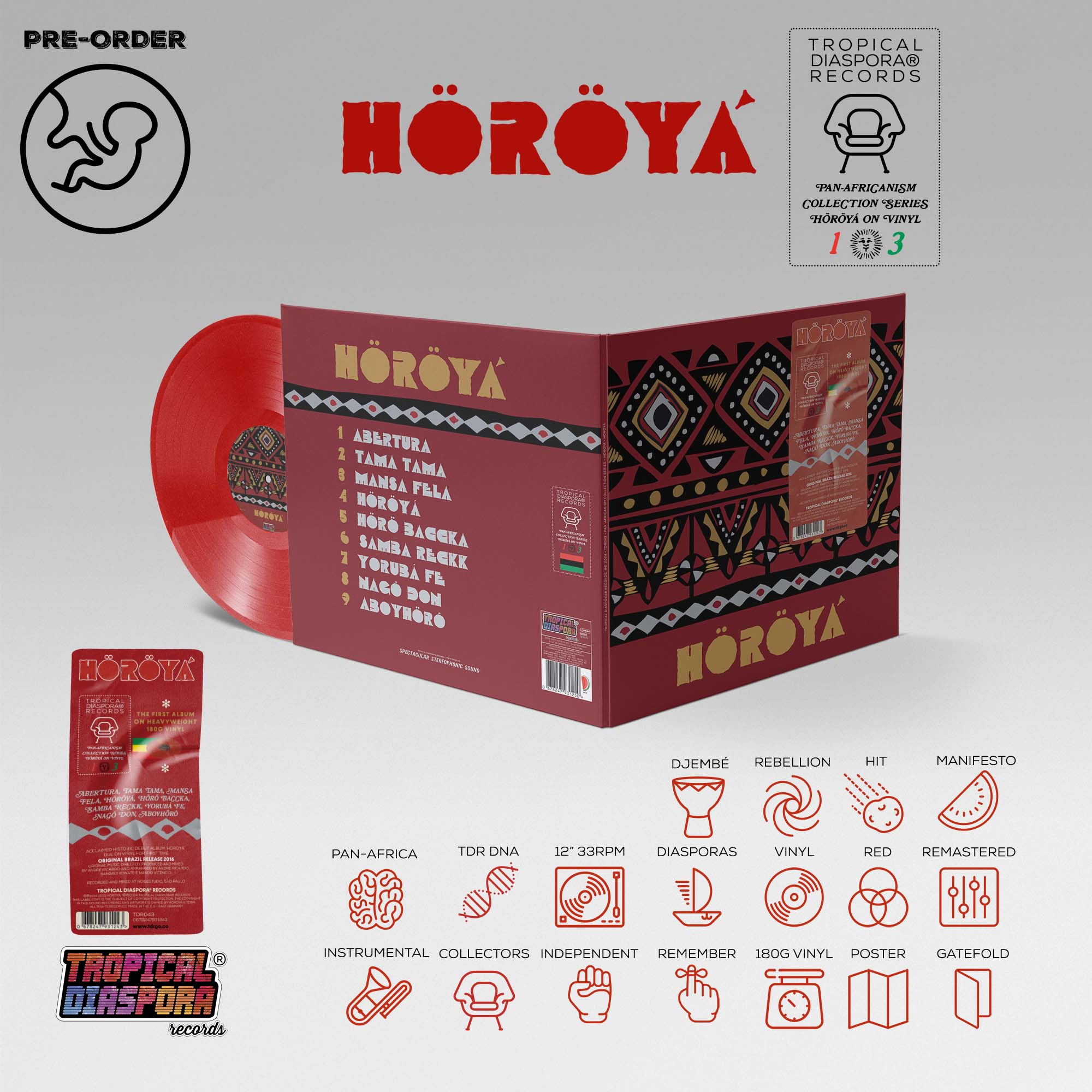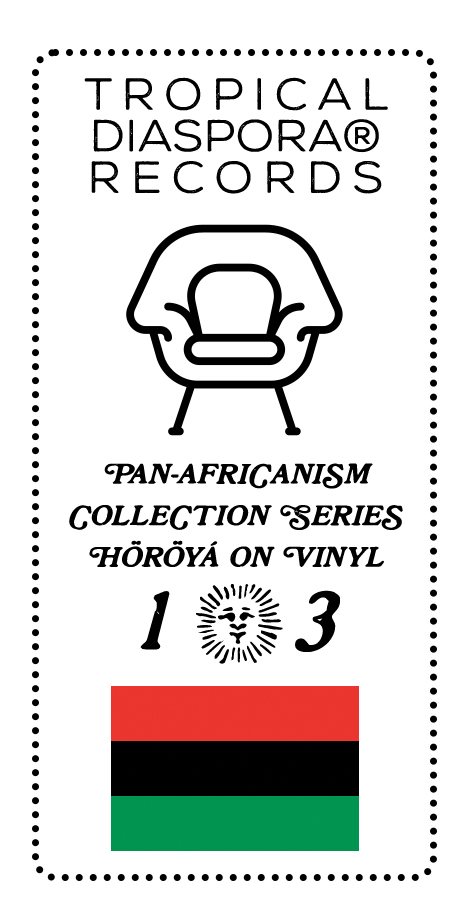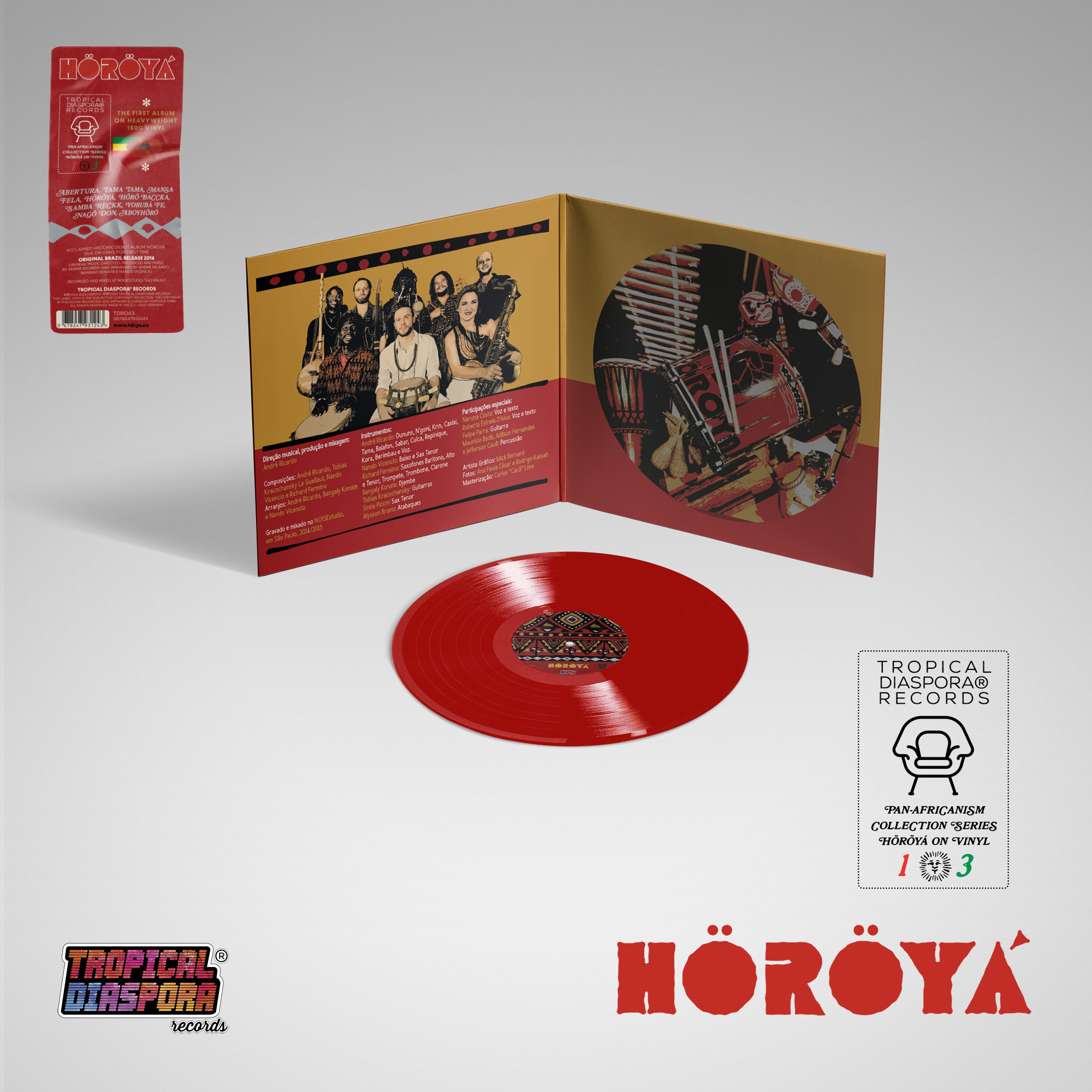HÖRÖYÁ
by HÖRÖYÁ
means in Malinke Freedom, Autonomy, Dignity
Tropical Diaspora® Records Pan-Africanism Collectors Series – Höröyá on Vinyl
Bandcamp Streaming
Höröyá´s First Album
The band based in São Paulo, Brazil is formed by Brazilian and West African musicians, connecting different cultures and establishing a dialogue between Brazil and the African continent. André Ricardo, multi instrumentalist, is the creator of the group and the conception of the musicality. Behind Höröya’s musical force is a powerful mix of percussion instruments from different cultures, such as sabar, atabaque, djembe, cuica and dunduns. They share space with instruments of African Griots, including balafon and ngoni, along with guitars, bass, trumpet and saxophones. Höröyá’s music creates a permanent contact between different traditions, while keeping their essence. Through music, Höröyá reinterprets in a new format the origins and influences of the African and Afro-Brazilian cultures.
Afrobeat was in vogue some years ago. Everyone was looking at Africa for inspiration especially in the music and words of Fela Kuti, the great Nigerian musician who fathered Afrobeat from West Africa’s Highlife and the Afro-American funk that he encountered after being in contact with the Black Panthers in the US. In the West, the independent music scene was in crisis, and Afrobeat seemed to offer a good opportunity to redeem Western musicians who, before an empty and depoliticized present, thought that ‘becoming Africans’ could gave them a surplus much needed in the industry. The great drummer and composer of Africa ’70, Tony Allen began touring around, appearing in every festival in the West, and collaborating in every new record made. Some bands began to include musicians from the African diaspora who were used to legitimize the bands as a colorful extra and helped to authenticate rhythms and lyrics. Afrobeat was everywhere. It came from the West and reclaimed some glorious past lost in the ‘darkness’ of African history. In countries like Brazil, but also in the US, Afrobeat served for the (white) elites to discovered the African heritage without having to feel uncomfortable about it. It is a very strange thing if we consider that Brazil has the second largest black population in the world. Somehow, in a twisted rework of the Hegelian Master-Slave dialectic addressed by Frantz Fanon, the West acknowledged so its dependence on the African musical tradition without acknowledging Africa’s independence from its world view.

Höröyá on YouTube
Tracks
Abertura 4:18
Tama Tama 05:21
Mansa Fela 05:45
Höröyá0 5:47
Horo Backka 05:19
Samba Recck 06:47
Yorubá Fe 06:46
Nago Don 06:16
Aboyohörô – Fechamento
Credits
Nas gravações:
André Ricardo: Dununs, N’goni, Krin, Caxixi, Tama, Balafon, Sabar, Cuíca, Repinique, Berimbau e Voz
Nando Vicencio: Baixo e Sax Tenor
Richard Fermino: Saxofones Baritono, Alto e Tenor, Trompete,
Trombone e Clarone
Bangaly Konate: Djembe
Tobias Kracochansky: Guitarras
Sintia Piccin: Sax Tenor
Alysson Bruno: Atabaques
Direção musical, produção e mixagem:
André Ricardo
Composições:
André Ricardo, Tobias Kracochansky,
Nando Vicencio e Richard Fermino
Arranjos: André Ricardo, Bangaly Konate e
Nando Vicencio
Participações especiais:
Naruna Costa: Voz e texto
Roberta Estrela D’Alva: Voz e texto
Felipe Parra: Guitarra
Maurício Badé, Adilson Fernandes e
Jefferson Cauê: Percussão
Arte gráfica: Mick Bernard
Fotos: Ana Paula César e Rodrigo Kassab
Masterização: Carlos “Cacá” Lima
all tracks written and produced by André Piruka at Noise Studio – São Paulo – Brazil
vinyl executive production and published by Tropical Diaspora® Records
Produced by HÖRÖYÁ





Social